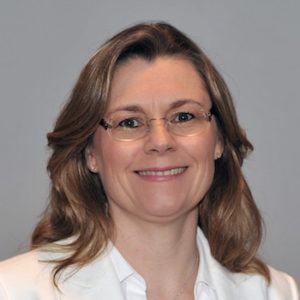

David Nethero and Kim Seals, managing directors of Golden Seeds, leaders of Golden Seeds’ investment in Acivilate
January 24, 2019
After working in aerospace, this entrepreneur turned to more traditional technology, helping to create digital TV and securing five patents. But what she dreamed of doing was providing people released from incarceration a second chance. Today, her company keeps these returning citizens from going back to prison. Her efforts to reform criminal justice were recently recognized with a grant from the MacArthur Foundation.
Golden Seeds’ David Nethero and Kim Seals discussed with Louise how a childhood goal led to the creation of a software-as-a-service platform (SaaS) with a goal to have 20 percent market share this year.
LW: When I was a teenager, my father was convicted of a felony, receiving a suspended sentence and probation. That meant he wouldn’t get locked up as long as he completed the probation period. He was fortunate. Even so, that one conviction cost him his office job and he was never able to get regular work again due to the stigma.
A returning citizen must have stable employment and housing. They also can’t consort with other felons. If they fall short, they’ll be reincarcerated. Getting a job is challenging enough, but when it comes to an apartment, many landlords won’t rent to someone with a criminal background. Even if a landlord does, the complex will likely house others with similar pasts. These are people a returning citizen isn’t legally supposed to be around, let alone speak with.
A professor of mine, Charlie Goetz at Emory University, once said: “New businesses start when people answer old questions in new ways.” My question, after 25 years, was how could I create second chances for people like my father? That got me looking at criminal justice and researching the market.
That led to the creation of Acivilate and our product, Pokket℠. It’s a SaaS platform that helps returning citizens, service providers and correctional supervision work together. It keeps people from reincarceration and brings greater efficiency to all stakeholders in criminal justice.
LW: This is a broken system. The U.S. spends between $80 and $130 billion a year on prison, jail, probation and court systems. It’s one thing for a person to return to prison because of a new offense. It’s another when they mistakenly didn’t follow one of the many conditions or obligations that can accompany probation or parole.
Sending them back only sets them back, overloads prisons and jails, bogs down the criminal justice system and causes costs to skyrocket.
Pokket uniquely empowers returning citizens to build their own plan with a case worker, probation officer and housing counselor, and then demonstrate they’re fulfilling it. They can self-submit with a mobile phone to show they’ve applied for jobs this week and that they’ve completed their community service. They can easily work with an agency that has relationships with employers. They can find a healthy living environment.
Most importantly, those involved can function as one team and guide the person towards a common goal cost efficiently. Without this, each agency may have its own plan that pulls a returning citizen in opposing directions. Everyone wants to see success, not the continuation of a cycle that holds progress back. Pokket functions as a mobile workforce management tool for those agencies.
LW: Surprisingly, being painted as simply well-intended was a challenge. Government is “where the rubber hits the road,” you need to work together, and sometimes non-profits, activists and policy people aren’t willing to compromise. This can create issues around trust.
Those that focus entirely on the ideal, often burn out. That can make a government reluctant to sign a contract because they don’t want to tackle systematic change with a partner that may back out. Also, agencies need to know you won’t abuse the position of trust. No one asks you to look the other way, but you’ll be privy to sensitive information. They need to know you can live within the complexities of criminal justice.
LW: The recent MacArthur grant was a tremendous endorsement. The Gwinnett County Sheriff’s Office in Georgia is one of 12 additional jurisdictions joining their Safety and Justice Challenge, a $148 million national initiative aimed at reducing over-incarceration. In partnership with us, they applied for the grant, and not only will they adopt Pokket, the Urban Institute will provide in-depth technical assistance.
As for upcoming updates, we have three new deployments underway. By the end of Q1 2019, we will have doubled in size and have a foothold in 20 percent of the entire serviceable population.
LW: First Step addresses the federal correctional population, which represents only five percent of the whole, however, it provides political cover for continued reforms at the state level. In 2018, Acivilate was invited to respond to a U.S. Probation (federal) RFI. Since most federal inmates are held far from the state they wish to return to, they experience a unique challenge in planning for reentry. Pokket is well-positioned to serve them, because it’s designed to enable someone in one geography to find resources and coordinate with providers in another geography.
LW: I hire experts that know more than I do about their specific areas and defer to their advice. We talk about culture this way: It’s more important for us to get it right than for any of us to be right.
LW: When we look at a prospective location, Golden Seeds members give us the “lay of the land.” We have a lobbyist firm to guide us on policy-makers and government issues. But members give invaluable local perspective, such as public reaction to an incident that may cause particular sensitivities.
Golden Seeds has a board observer at Acivilate, Kim Seals. She has given us a very useful framework for conversations with customers on change and workforce management. We’ve gained insights and have been able to make inroads very quickly that otherwise wouldn’t have happened.
Learn about the work of Golden Seeds.